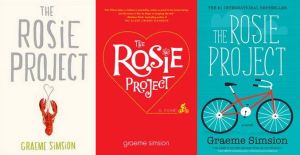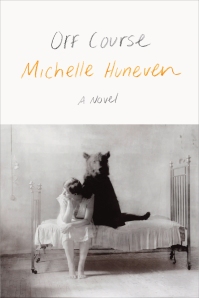-
Recent Posts
- The American Book Review: The New Campus Novel Issue
- The New Millennial Academic Novels – Jeffrey J. Williams’ New Essay
- An Obscure Academic Novel Well Worth Reading by Professor Merritt Moseley
- CfP: MLA Session “Where are the Wonder Girls? Heroines and Persistence in Campus Novels”, Jan 7-10,2020. Deadline for abstracts: March 15, 2020.
- Real Life by Brandon Taylor
Recent Comments
kuhblasen on Why you should be reading Cow… merrittmoseley on An Obscure Academic Novel Well… Michael Wilding on An Obscure Academic Novel Well… merrittmoseley on Ms. Mentor’s Summer Read… Lavelle on Black Academic Fiction Archives
Meta
Categories
- "Schoolsville"
- academic novel
- Bez kategorii
- Bibliography
- blogs
- campus novel
- CfP
- Chicago Tribune
- college novel
- Conferences
- films
- Financial TImes
- graduate students
- Guardian
- Huffington Post
- Independent
- Inside Higher Ed
- L.A. Times
- LA Times
- Lists
- Ms. Mentor
- NY Times
- Rankings
- Slate
- The Canberra Times
- The Chronicle of Higher Education
- The Guardian
- The New Republic
- The Wall Street Journal
- The Washington Post
- Themes
- USA Today
Tagi
A New Life Bernard Malamud Blue Angel Bret Easton Ellis Brideshead Revisited campus novel Chad Harbach Changing Places David Lodge Dead Poets Society Dear Committee Members Disgrace Don DeLillo Donna Tartt Elaine Showalter Evelyn Waugh F.Scott Fitzgerald Fanshawe Francine Prose I am Charlotte Simmons J.M. Coetzee James Hynes Jane Smiley Jeffrey Eugenides Jeffrey J. Williams John Williams Jonathan Franzen Jonathan Lethem Julie Schumacher Kingsley Amis Lorrie Moore Lucky Jim Malcolm Bradbury Mary McCarthy Max Beerbohm Michael Chabon Moo Nathaniel Hawthorne Neal Stephenson Nice Work Oleanna On Beauty Pale Fire Paul Auster Philip Roth Pictures from an Institution Pnin Porterhouse Blue Randall Jarrell Richard Russo Saul Bellow Small World Stoner Straight Man Surviving Desire The Art of Fielding The Corrections The Groves of Academe The History Man The Human Stain The Marriage Plot The Professor's House The Rules of Attraction The Secret History The Squid and the Whale This Side of Paradise Tom Sharpe Tom Wolfe Vladimir Nabokov White Noise Who’s Afraid of Virginia Woolf? Willa Cather Wonder Boys Zadie Smith Zuleika Dobson-
Join 19 other subscribers
- Follow "Schoolsville:" Academic/Campus/College/University Fiction on WordPress.com
Stats
- 11,649 hits
Category Archives: graduate students
The New Millennial Academic Novels – Jeffrey J. Williams’ New Essay
Posted in "Schoolsville", academic novel, blogs, campus novel, college novel, graduate students, Inside Higher Ed
Tagged Chemistry, Conversations With Friends, Lucky Jim, Normal People, Publish and Perish, Straight Man, The Life of the Mind, The Mirror Has Two Faces, The Paper Chase, The Shakespeare Requirement, Wonder Boys
CfP: MLA Session “Where are the Wonder Girls? Heroines and Persistence in Campus Novels”, Jan 7-10,2020. Deadline for abstracts: March 15, 2020.
“Where are the Wonder Girls? Heroines and Persistence in Campus Novels”
Call for Papers
Modern Language Association Convention
Toronto, Ontario
January 7-10, 2021
Enormous reading pleasure can be derived from Michael Chabon’s Wonder Boys but where are the wonder girls? Where are American (campus) novels about gallivanting women academics and writers based in academia, getting into trouble, having multiple lovers in different countries, shoplifting, dancing naked in the rain (the list is suggestive, not exhaustive)? Yet novels which are comic, feel-good, and sporting happy endings? There is a discernible tendency to cast as protagonists of campus novels and artist novels unhappy and unlucky women, tormented victims rather than fierce individuals with agency.
I’m seeking papers on representations of women academics and writers in contemporary US campus literature depicting women’s efforts to survive as artists. I’m interested in e.g. how an artist heroine navigates the nexus between and the lacunae of intellectuality, creativity, and sexuality, juggling different roles the society has burdened her with, while battling various obstacles, exterior and interior and, if she doesn’t have an inherited income and a house of her own, being torn between the need to create and the need to live, caught in a double-bind between art and life, succeeding and/or failing as a woman or as an artist. I’m primarily interested in portrayals of active women artists who are protagonists not mere characters.
Please submit a 250-word abstract and brief biography to marta.lysik@uwr.edu.pl by March 15, 2020.
https://mla.confex.com/mla/2021/webprogrampreliminary/Paper12953.html
Real Life by Brandon Taylor
February 25, 2020 – The New Yorker
“REAL LIFE” IS A NEW KIND OF CAMPUS NOVEL
“Condescension of this kind recurs throughout “Real Life,” a campus novel imagined from the vantage of a character who is usually shunted to the sidelines. Taylor’s début shadows Wallace, a gay black student from a small town in Alabama, through a series of personal and professional skirmishes that complicate the last weekend before his fourth year of graduate school. When the book opens, Wallace is pondering whether he ought to leave his university and the predominantly white, Midwestern town that houses it. The loss of his nematodes is the second death that is introduced in the opening pages. Taylor relegates the first to a numb aside: Wallace’s father has just died. His decision to skip the funeral scandalizes his breezy white friends—one of whom, a histrionic Swede, spent the summer before graduate school summiting a mountain to mourn the death of his grandfather. “It was your dad,” another friend reminds Wallace, as though he does not remember. Wallace seems to like these people—perhaps most of all Miller, a surly, mercurial scientist, and the quietest in their group—but none of them manages to comprehend the “curious shape of his grief, which does not bear the typical dimensions.” Wallace holds his friends at a remove, leaving unexplained the childhood trauma that has predisposed him to introversion and distanced him from his family in the first place.”
Posted in campus novel, college novel, graduate students
Tagged Brandon Taylor, Real Life
CfP:”Representations of Textual and Contextual Boundaries in Academic Fiction, Non-Fiction, and Film” in Kaunas, Lithuania 27-28 April, 2017
Session organized within the framework of the
“Texts and Contexts: The Phenomenon of Boundaries” conference
Vilnius University Kaunas, Faculty of Humanities
This panel aims to explore the representations of different boundaries at work in academic fiction, non-fiction and film, be they referring to genre and its textual fabric, or the reality and different contexts these narratives depict.
Submissions can relate, but are not limited to, the following topics:
- Textual vs. material reality in academic narratives,
- Student-teacher boundaries and off-limits behaviors in academic narratives,
- Divisions in the academe,
- No limits – academic utopias and dystopias,
- Breaking the boundary of realism – sci-fi academic narratives,
- Limits of empathy and identification – academics reading and writing academic novels,
- Frontiers and trailblazers in the academe,
- Probing the limits of truth, or facts and fiction in academic narratives and life writing – autofiction, roman à clef etc.,
- Academic metafiction and breaking down of the fourth wall – writers writing about writers and writing,
- Limitless navel-gazing? Self-reflexivity in academic narratives, or academics writing about academe and academics
- Academic novel – genre boundaries and margins
Please send a short abstract (no more than 200 words) for a 20-minute paper, and a bio note by 6 February, 2017 to the session organizer Marta Lysik at marta.lysik@uwr.edu.pl.
Posted in Bez kategorii, campus novel, CfP, college novel, Conferences, films, graduate students
Graeme Simsion’s The Rosie Project & The Rosie Effect
 November 11, 2014 – The Canberra Times
November 11, 2014 – The Canberra Times
Gang-gang: The Rosie Project is University of Canberra’s Book of the Year by Ian Warden
“It is about Don Tillman, an autistic, socially-challenged associate professor of genetics who takes a scientific approach to his search for love. He has prepared a 16-page questionnaire to be completed by any candidates for his affections. Rosie, a fiery Ph.D student, is the object of not so much his affections as his calculations.”
September 2014: The Rosie Effect
Posted in campus novel, graduate students, The Canberra Times
Tagged Graeme Simsion, The Rosie Project
‘Off Course,’ by Michelle Huneven
 “A doctoral dissertation not getting written is never just a doctoral dissertation not getting written. It’s always a stand-in for something more consequential (take it from a former grad student who knows). But when we encounter Cressida (Cress) Hartley, the protagonist of Michelle Huneven’s fourth novel, ‘Off Course,’ she doesn’t realize this yet. In fact, she has just persuaded her parents to allow her to live in their vacation cabin in California’s Sierra Nevada for “three months free and clear,” so that she can ‘bang . . . out’ her dissertation in economics.”
“A doctoral dissertation not getting written is never just a doctoral dissertation not getting written. It’s always a stand-in for something more consequential (take it from a former grad student who knows). But when we encounter Cressida (Cress) Hartley, the protagonist of Michelle Huneven’s fourth novel, ‘Off Course,’ she doesn’t realize this yet. In fact, she has just persuaded her parents to allow her to live in their vacation cabin in California’s Sierra Nevada for “three months free and clear,” so that she can ‘bang . . . out’ her dissertation in economics.”
May 23, 2014 – The New York Times
Writer’s Retreat. ‘Off Course,’ by Michelle Huneven
By Naomi Fry
Posted in campus novel, college novel, graduate students, NY Times
Tagged Michelle Huneven, Off Course
